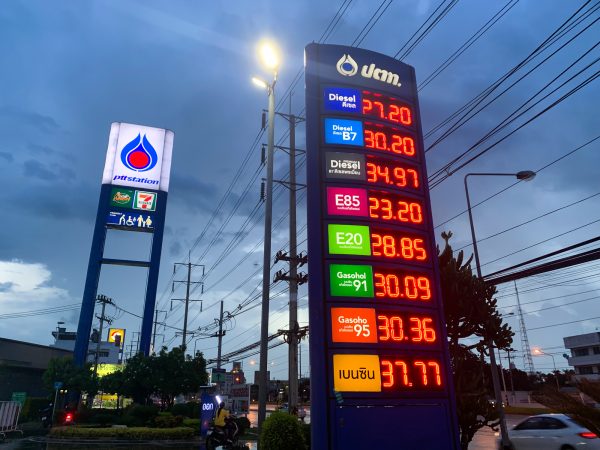The price of oil has skyrocketed in recent months. In March, crude oil hit levels last seen a decade ago, trading on the European spot market at around $117 a barrel, which was way up from the $18.38 it was at in April 2020. This, in turn, is pushing up the cost of energy around the world and especially the price of gasoline (although crude has already started come down a bit since March).
High oil prices have several knock-on effects. The most politically salient is that they make people angry, because no one likes paying higher prices for an essential good like gasoline which they need to use every day. For this reason, many political leaders have a vested interest in ensuring that gasoline prices remain stable and affordable and will go to great lengths to achieve this through subsidies, price ceilings, tax holidays, rationing, and other market interventions.
But high prices can serve another purpose, which is to move people away from fossil fuels and toward more renewable forms of energy faster than they otherwise might have. Because high prices do make people angry, if they stay high for long enough people will give up on gas-guzzling automobiles and turn to public transit or electric vehicles. I realize these may not be terribly realistic alternatives for many consumers in Southeast Asia at the moment, but that’s kind of the point – if prices remain high for long enough then governments will be forced to treat them more seriously.
In other words, managing the impact of high oil prices involves trade-offs. In some cases, prices can be suppressed in the interest of political stability. But they can also be passed onto consumers, which is likely to accelerate the transition toward cleaner and more sustainable modes of energy consumption. This will involve some short and medium-term pain and disruption, but can eventually lead to a more desirable long-term outcome.
In Southeast Asia we are seeing a bit of both, as individual governments weigh their comparative advantages and the trade-offs involved in managing surging oil prices. We can learn a bit about these trade-offs from looking at how high oil prices have been transmitted into gasoline retail markets in Thailand and Indonesia.
Gas in Thailand is sold by several different companies, including the state-owned PTT but also companies like Shell and ExxonMobil. There are subsidies and price caps, but some portion of higher oil prices is generally passed onto consumers. As a result, the price of Thailand’s premium unleaded gasoline almost doubled from 26.56 baht a liter in May 2020 to 49.51 baht two years later.
By contrast, Indonesia’s premium unleaded Pertamax has seen only a single price increase in April, when it rose by about 30 percent. The price of Pertalite, a lower octane fuel, has not increased at all. Holding these prices steady in the face of surging oil prices is costing the state-owned oil and gas company Pertamina, which has a virtual monopoly on the retail sale of gasoline, billions of dollars as they are eating the price difference. Some of these losses are covered by subsidies, but the real reason Pertamina is willing to take them is because it is politically beneficial to its sole owner – the government of Indonesia.
Indonesia has made the choice to keep prices low and stable, and it is better positioned to do so than Thailand because Indonesia has historically been a big oil producing country. (Its oil reserves are falling but that is a topic for another time). Thailand, meanwhile, passes some of these higher costs onto consumers and is generally less able to suppress high prices since they are net energy importers and don’t like to run big budget deficits.
This has been, in my estimation, a key reason why Thailand is making decent progress transitioning to cleaner forms of energy consumption: they don’t really have a choice. This current bout of high oil prices is in all likelihood simply going to accelerate that trend while reinforcing the strategic necessity of moving faster. And this is true for other net energy importers, like Vietnam and the Philippines.
Countries with more oil and gas at their disposal, like Malaysia and Indonesia, are operating under a different political economic calculus and thus have different incentives. Because they are able to control prices to some degree during times of oil market volatility, they tend to do so in the interest of political stability. This is not to say such countries are incapable of transitioning away from fossil fuel consumption. It’s just that the high price of oil as set by market forces is unlikely to be the catalyst.


